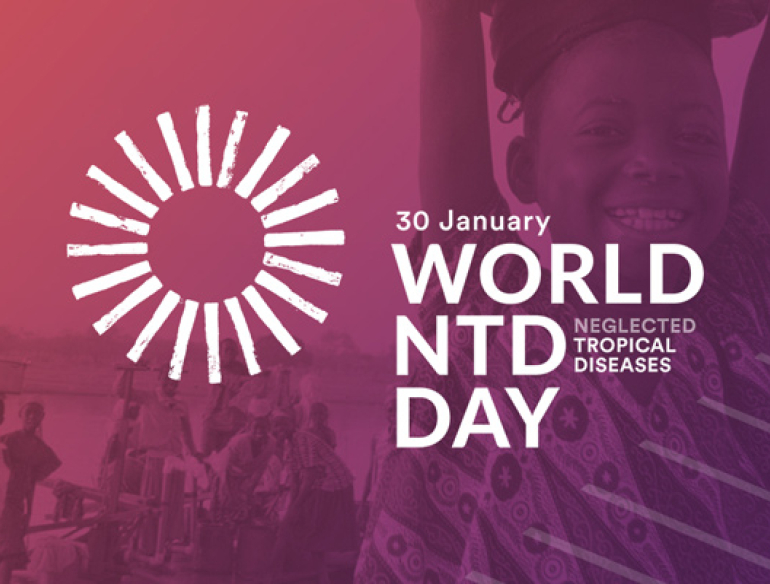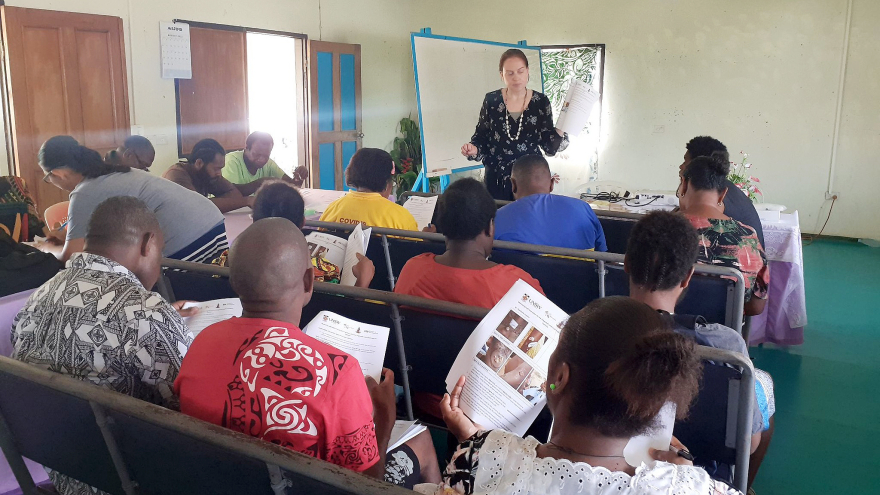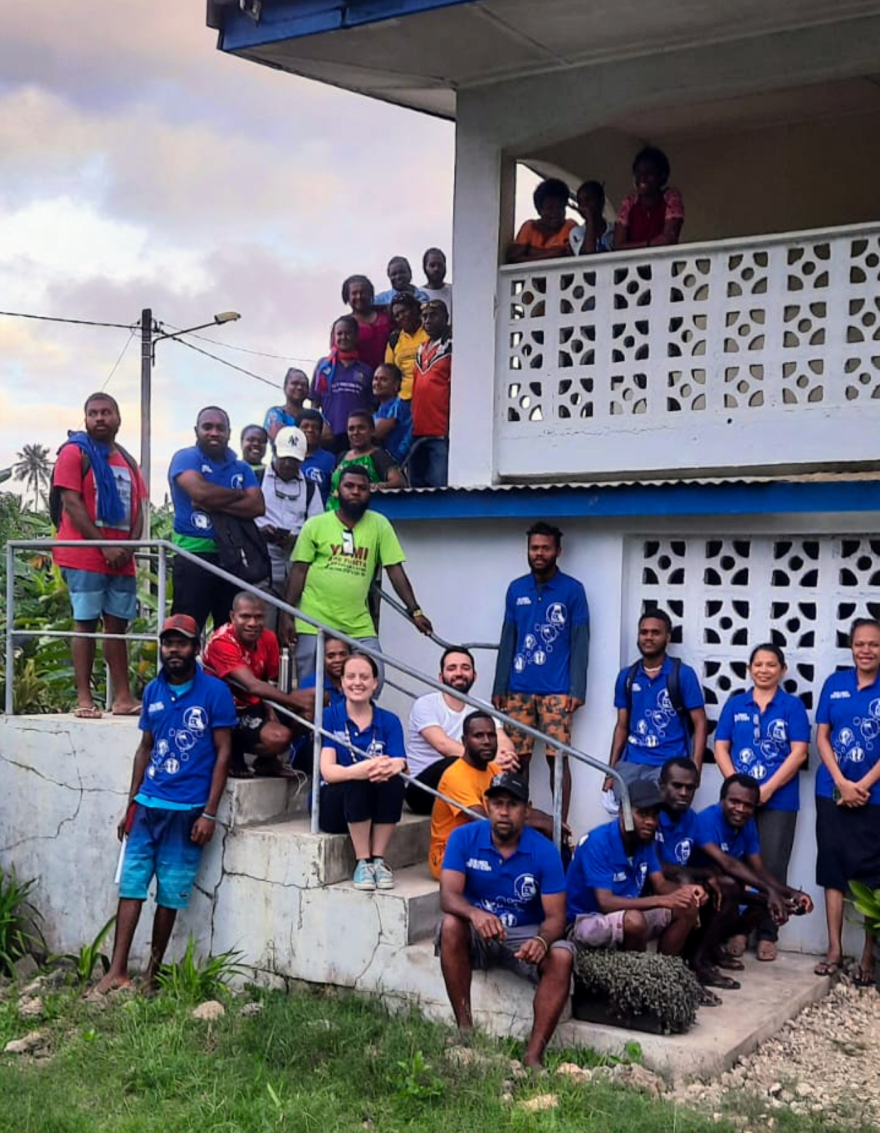In Australia, a child diagnosed with a parasitic disease, whether scabies caused by skin mites, or one of the various forms of intestinal worms, can expect quick access to simple, curative treatment.
But in countries where infection rates are high – particularly low- and middle-income countries in tropical locations – these infections can have much more serious consequences.
In many cases, the infection is not diagnosed or treated, and can lead to chronic symptoms that cause the child to become so distracted at school that they fall behind or drop out. In other cases, a child will undergo treatment to clear the infection only to return to school and become infected again. Some children can also develop more severe complications from long-term parasitic infestation.
“Missing school, and the chance to get an education, contributes to the cycle of poverty,” says Associate Professor Susana Vaz Nery, who leads the Neglected Tropical Diseases Research Group at the Kirby Institute. “Perhaps because these diseases are disabling rather than deadly, their control can be deprioritised in countries experiencing multiple health challenges. Our research at the Kirby Institute is working to change that.”
Members of the Kirby Institute NTD Research Group and colleagues in Sanma Province, Vanuatu in 2022.
Neglected tropical diseases (NTDs) are a diverse group of serious, disabling health conditions caused by parasites, protozoa, bacteria, and viruses. Globally, they are responsible for a very high burden of disease, comparable to other more well-recognised diseases like HIV, tuberculosis or malaria.
“NTDs are, by name and by nature, largely neglected on the global stage,” says A/Prof Vaz Nery. “But they are usually avoidable and curable with simple, safe, and cost-effective interventions. The key to their control is access to these health interventions, working closely with communities at risk.”
There is a growing body of evidence and expertise in Australia and our region to support NTD control. An NHMRC-funded Centre of Research Excellence, the Australian Centre for Control and Elimination of NTDs (ACE-NTDs), based at the Kirby Institute since 2018, has brought together partners from across the country and our region who are working towards the 2030 targets established by the World Health Organization.
“Through ACE-NTDs, early career researchers and PhD students have had the opportunity to lead a number of small and pilot projects, fostering collaborations with partners across the Asia-Pacific region and building the capacity of the upcoming generation of NTD researchers,” says Professor John Kaldor, who is Chief Investigator on ACE-NTDs.
One very important strategy for controlling and potentially eliminating several of the globally important NTDs is known as mass drug administration (MDA), through which safe, curative medications are offered to entire communities in which these diseases are endemic.
“While socio-economic development will be the long-term solution to control most NTDs, progress can be slow,” says A/Prof Vaz Nery. “In the meantime, we need effective strategies co-designed with communities to increase access to effective measures such as MDA.”
Members of the Kirby Institute NTD Research Group and colleagues in Sanma Province, Vanuatu in 2022.
Integrated control: the path to healthier communities
In 2021, the World Health Organization (WHO) launched the road map that sets out a range of targets to prevent, control, eliminate and eradicate a number of NTDs by 2030. A key approach under the road map is the integration of control activities across multiple diseases. “With the 2030 targets in mind, we also need to understand how communities understand NTDs and their control through MDA and related strategies, to ensure that the health system can sustain such measures over long periods of time,” says A/Prof Vaz Nery.
The Kirby Institute responded immediately to the road map, and was awarded an NHMRC Partnership Project Grant under A/Prof Vaz Nery’s leadership aiming to support and evaluate integrated approaches in several Pacific countries alongside Australian-based and international researchers, non-governmental organisations and national ministries of health.
“Integration can be achieved by offering multiple medications at the same time, rather than relying on fragmented, disease-specific programs,” she says. “Through our Partnership Project, we are supporting these programs in several countries by measuring their impact. By taking a multi-disciplinary and collaborative approach, we are generating new knowledge about how best to implement and evaluate integrated control for multiple NTDs, to ensure their long-term success.”
Vanuatu, a Pacific Island nation, has been a particular focus of a recent collaborative activity. With a population spread widely over 83 islands, access to effective health care is not always straightforward. The Kirby Institute is working alongside non-profit organisation Bridges to Development and the Vanuatu Ministry of Health to develop and implement an innovative large-scale, integrated control program targeting multiple NTDs. As part of the program, the entire population of three provinces will be offered the antiparasitic medications albendazole and ivermectin, and the antibiotic azithromycin, aiming to achieve control of worm diseases and two skin conditions, scabies and yaws. The program will also involve strategies enhance the diagnosis and reporting of NTDs.
“Our real value-add to this program is that we are providing technical support to the Ministry of Health which will allow for the program to be rolled out with improved diagnostic approaches and boosted data analysis. This will improve the assessment of impact and support the planning of future interventions if needed,” says A/Prof Vaz Nery. “Measuring and providing evidence of success is crucial in any setting and particularly so where health spending is limited. By tracking the effectiveness of the program in these provinces, we can then provide guidance for how they should be rolled out nationally, as well as in other countries facing similar challenges.”
A/Prof Vaz Nery says that this approach highlights the importance of partnership and collaboration in achieving infection control. “Health system implementation of infection control strategies requires a multi-faceted and highly collaborative approach. In partnership with the Vanuatu Ministry of Health, as well as the communities taking part in this program, we are confident that together, we can deliver a program that has a lasting, positive impact on the health of communities in our region.”


